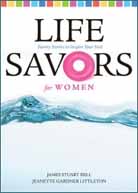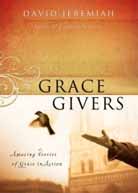
Reading · Editing · Audience · Discipline
Reading - Read your article thoroughly before your audience does.
Every article I have ever posted has been read, re-read, and read yet again--even this one. 9 times out of 10 a writing friend also reads it, before I consider it done.
| Reading out loud gives our brains a different perspective, and brings our ears into the editing process as well. While reading out loud, I ensure that the rhythm of each sentence sounds right, and if it doesn't I change it. |
And since we're on the topic, I also want to mention the importance of reading other works as well. It's one of the best exercises to help us develop our skill.
Edit - Have the courage to cut.
Editing isn't just about hunting for grammar and spelling mistakes, it also involves the very important task of cutting all unnecessary elements from the writing piece.
| Some of the best writers I know have had to cut entire chapters from their books so don't feel robbed if you have to cut a sentence here and there. It will make for a tighter article in the end. |
I was recently involved in a writing contest, in which I was confident that the second place winner had a good chance. I suspect that she might have won had the piece been cut to about half the length. It was well written, but unfortunately the unnecessary elements, bored a few of my fellow judges.
I often find that an article would read so much better if the first paragraph were cut out completely. In fact someone suggested I do that this week, and I was pleased with the end result.
I took a 1,000-word article the other day, and cut it down to 200 words for an assignment I was working on. It was a challenge, but the end result was few words that packed emotion. It's amazing what a little--or a lot--of slimming down can do.
Audience - Speak to your target audience.
When putting together a book proposal, one of the questions we answer is this, "Who is your target audience?" Should it be any different for an article of 1,000 words? Nope!
| We'd all love to be everything to everybody, but the best writers know that by narrowing our focus to one specific audience we speak directly to them. In Stephen King's book On Writing: A Memoir of the Craft, he refers to the "ideal reader," which in his case is his wife, Tabitha. He writes with Tabitha in mind, knowing that she is the one who will laugh or cry by his words. |
 My audience is Stephanie. Her writing mind works much like mine does, as does her humor, and she's the one that will say, "Okay--that line made me cry." There are many days I smile while writing, thinking Steph is gonna love this line! And of course I'm thrilled when I'm right.
My audience is Stephanie. Her writing mind works much like mine does, as does her humor, and she's the one that will say, "Okay--that line made me cry." There are many days I smile while writing, thinking Steph is gonna love this line! And of course I'm thrilled when I'm right.
McDonalds doesn't provide the quiet atmosphere I look for in a fine dining establishment, nor do they prepare the finest prime rib--if any, but I do know that if I want to take the kids someplace fast and fun, McDonalds is our first choice. That's the power of reaching a target market.
Discipline - Discipline yourself to work at the craft.
I've had countless people tell me, "I'm writing a book." You might have even said that yourself, but after one year...two years...three years or more, one has to wonder--where is this book? Did I step on some toes, here?
Thinking about writing, and putting pen to paper is the difference between a dreamer and a writer.
| I look at it this way - every minute that I waste watching TV or playing on facebook, some other writer is writing my book. |
Maybe you're not interested in writing a book--perhaps it's short stories or articles that you'd like to get published. What are you doing to make that dream happen? As a writer we need to discipline ourselves to write, to build our profile, to make contacts, and to submit articles.
There's a lot of work to be done. And you can bet your pocket protector that those who are getting it done, stopped merely "dreaming" and started "doing" a long time ago.











